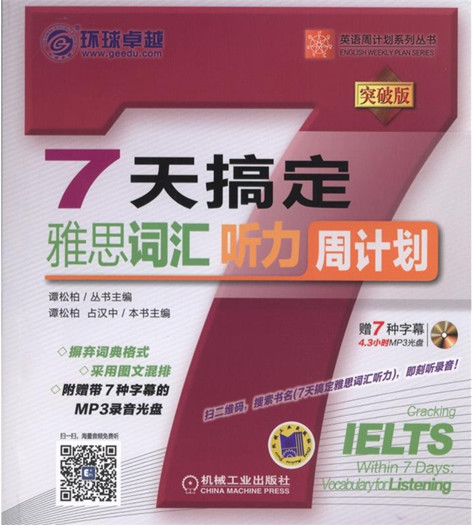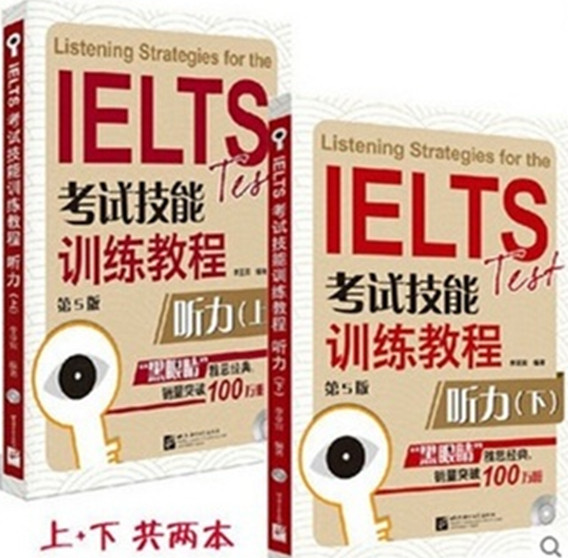1.雅思閱讀材料
Seeking an energy holy trinity
文章源:From Economist.com(Jan 10th 2007)
1 NEELIE KROES, the European Union’s competition commissioner, did not mince her words when reporting on Europe’s energy markets on Wednesday January 10th. Europe’s energy firms have failed to invest in networks and so customers are suffering. Those “vertically integrated” energy companies such as Electricité de France (EDF) or Germany’s E.ON, widely dubbed as “national champions”, are effectively behaving like local monopolies. Shy of competition, eager for artificially high prices, they are helping to block the efficient generation, transmission and distribution of energy on the continent.
2 Energy prices vary wildly across Europe. Ms Kroes wants to see cheaper energy, and intends to push suppliers to divest their distribution network and to get them to invest more in transportation systems so that more energy—in the form of gas, or electricity, for example—can flow easily over borders. It is remarkably hard, for example, for gas-poor Germany to import from the neighbouring, gas-rich Netherlands. Companies that dominate national markets have, so far, had little interest in improving the interconnections which would mean lower prices for consumers across the continent.
3 Ms Kroes, of course, will struggle to get her way. The European Commission, which on the same day presented its recommendation for improving EU energy policy, also wants to see the unbundling of ownership, the legal separation of energy suppliers and transporters, something that the integrated energy companies and interested governments, notably in France and Germany, are bound to oppose ferociously.
4 Complicating the matter is an argument over the security of energy supply in Europe. Much has been made of the risk for western Europe of depending too heavily on Russian exports of gas. Russia under Vladimir Putin is prone to using energy exports as a blunt tool of foreign policy, especially when trying to bully countries in its hinterland. Last year Russia interrupted gas deliveries to Ukraine, affecting supplies in central and western Europe too. This week it blocked oil exports passing via Belarus to Europe, though that spat was soon resolved.
5 The risk is that concerns about security of supply may be used spuriously by those in Europe who oppose the sort of liberalisation encouraged by Ms Kroes. The likes of E.ON and EDF may claim that only protected national champions are able to secure supply, by striking long-term deals with powerful foreign suppliers. The Commission disagrees. Such deals are too often politically motivated and far from transparent. Protection has been tried for long enough and evidently has not worked for the internal market, nor have these companies secured the best deals for consumers from the Russians.
6 In contrast, the Commission's new policy proposes, ideally, a break-up of these companies into suppliers and distributors. (As a second best solution, especially for France and Germany, it recommends the management of the networks by a third party.) Properly independent managers of Europe's energy networks would have a strong incentive to build interconnecting pipelines and power lines across borders. For the gas market another means of ensuring competition and security would be finding a more diverse range of suppliers, for example by building more terminals for the import of liquified natural gas. It would also be likely to mean lower prices, if the example of liberalised Britain over the past ten years is anything to go by.
7 Whether any of this is likely to happen soon, however, is another matter. The Commission is also calling for European governments to agree on a common effort to reduce carbon emissions by at least 20% by 2020 (compared with 1990 levels). If America is willing to play ball, the Commission proposes to reduce emissions by as much as 30%. Achieving either target would mean promoting cleaner cars, a more effective emissions-trading system for Europe, wider use of public transport and a sharp increase in the use of renewable sources of energy, like wind and solar power. All that is laudable enough, but will also require political horse-trading as governments—Europe’s leaders are due to meet in March to discuss the various energy proposals—try to avoid commitments that may hurt domestic energy companies or make European firms less competitive than rivals in America, Asia and elsewhere.(689 words)
2.雅思閱讀題目
Questions 1-5
Do the following statements reflect the views of the writer in the reading passage?
In boxes 1-5 on your answer sheet write
YES if the statement reflects the views of the writer
NO if the statement contradicts the views of the writer
NOT GIVEN if there is no information about this in the passage
1. Europe’s energy companies have funded the construction of the distribution network.
2. There has been a wide range of energy prices within Europe.
3. Gas-poor Germany has to pay a price higher than average to import gas from its neighbour.
4. E.ON and EDF may oppose the liberalisation due to their concerns about the security of energy supply.
5. The European Commission proposes to reduce carbon emissions by 30% if the U.S. is willing to cut its.
Questions 6-10
Look at the box of countries below.
Choose One or Two countries to complete the following sentences.
Write your answers in boxes 6-10 on your answer sheet.
Countries
A. Belarus
B. Britain
C. France
D. Germany
E. Russia
F. Ukraine
G. The U.S.
6. It’s dangerous for western Europe to depend too much on gas imports from ……
7. A liberalised policy of energy supply was enforced over ten years in …
8. Last year energy supplies in central and western Europe was affected owing to the interruption of gas deliveries to …
9. The governments in …… are bound to oppose the separation of energy suppliers and transporters?
10. Oil exports passing via … to Europe was blocked this week.
Questions 11-14
Choose NO MORE THAN THREE WORDS from the reading passage above for each answer.
Write your answers in boxes 11-14.
11. The EC disagrees with energy firms to strike long-term deals with foreign suppliers because such deals are usually far from …
12. The EC proposes to split those “national champions” into …
13. A more diverse range of suppliers would guarantee …in the European gas market.
14. The realization of carbon emissions reduction would require the promotion of cleaner cars, a better emissions-trading system, wider use of public transport and more use of … of energy.Key and Explanations:
1. No
See para.1: Europe’s energy firms have failed to invest in networks…
2. Yes
See para.2: Energy prices vary wildly across Europe.
3. Not Given
See para.2: It is remarkably hard, for example, for gas-poor Germany to import from the neighbouring, gas-rich Netherlands.
4. No
See para.5: The risk is that concerns about security of supply may be used spuriously by those in Europe who oppose the sort of liberalisation encouraged by Ms Kroes. The likes of E.ON and EDF may claim that…
5. Yes
See para.7: If America is willing to play ball, the Commission proposes to reduce emissions by as much as 30%.
6. E
See para.4: Much has been made of the risk for western Europe of depending too heavily on Russian exports of gas.
7. B
See para.6: It would also be likely to mean lower prices, if the example of liberalised Britain over the past ten years is anything to go by.
8. F
See para.4: Last year Russia interrupted gas deliveries to Ukraine, affecting supplies in central and western Europe too.
9. C, D
See para.3: …the legal separation of energy suppliers and transporters, something that the integrated energy companies and interested governments, notably in France and Germany, are bound to oppose ferociously.
10. A
See para.4: This week it blocked oil exports passing via Belarus to Europe, though that spat was soon resolved.
11. transparent
See para.5: by striking long-term deals with powerful foreign suppliers. The Commission disagrees. Such deals are too often politically motivated and far from transparent.
12. suppliers and distributors
See the sentences in para.1 (Those “vertically integrated” energy companies such as Electricité de France (EDF) or Germany’s E.ON, widely dubbed as “national champions”…) and para.6 (…the Commission's new policy proposes, ideally, a break-up of these companies into suppliers and distributors.)
13. competition and security
See para.6: For the gas market another means of ensuring competition and security would be finding a more diverse range of suppliers…
14. renewable sources
See para.7: Achieving either target would mean promoting cleaner cars, a more effective emissions-trading system for Europe, wider use of public transport and a sharp increase in the use of renewable sources of energy…
- 05-22·2018雅思閱讀模擬題精選及答案匯總
- 02-20·2018雅思閱讀模擬題精選及答案(十五)
- 02-20·2018雅思閱讀模擬題精選及答案(十四)
- 02-20·2018雅思閱讀模擬題精選及答案(十三)
- 02-20·2018雅思閱讀模擬題精選及答案(十二)
- 12018-05-222018雅思閱讀模擬題精選及答案匯總
- 22018-02-202018雅思閱讀模擬題精選及答案(十五)
- 32017-11-072017年雅思閱讀模擬題:極光
- 42017-07-122017年雅思閱讀模擬題及答案解析匯總
- 52017-07-112017年雅思閱讀模擬題及答案解析(七)
編輯推薦
- 模擬試題
- 歷年真題





